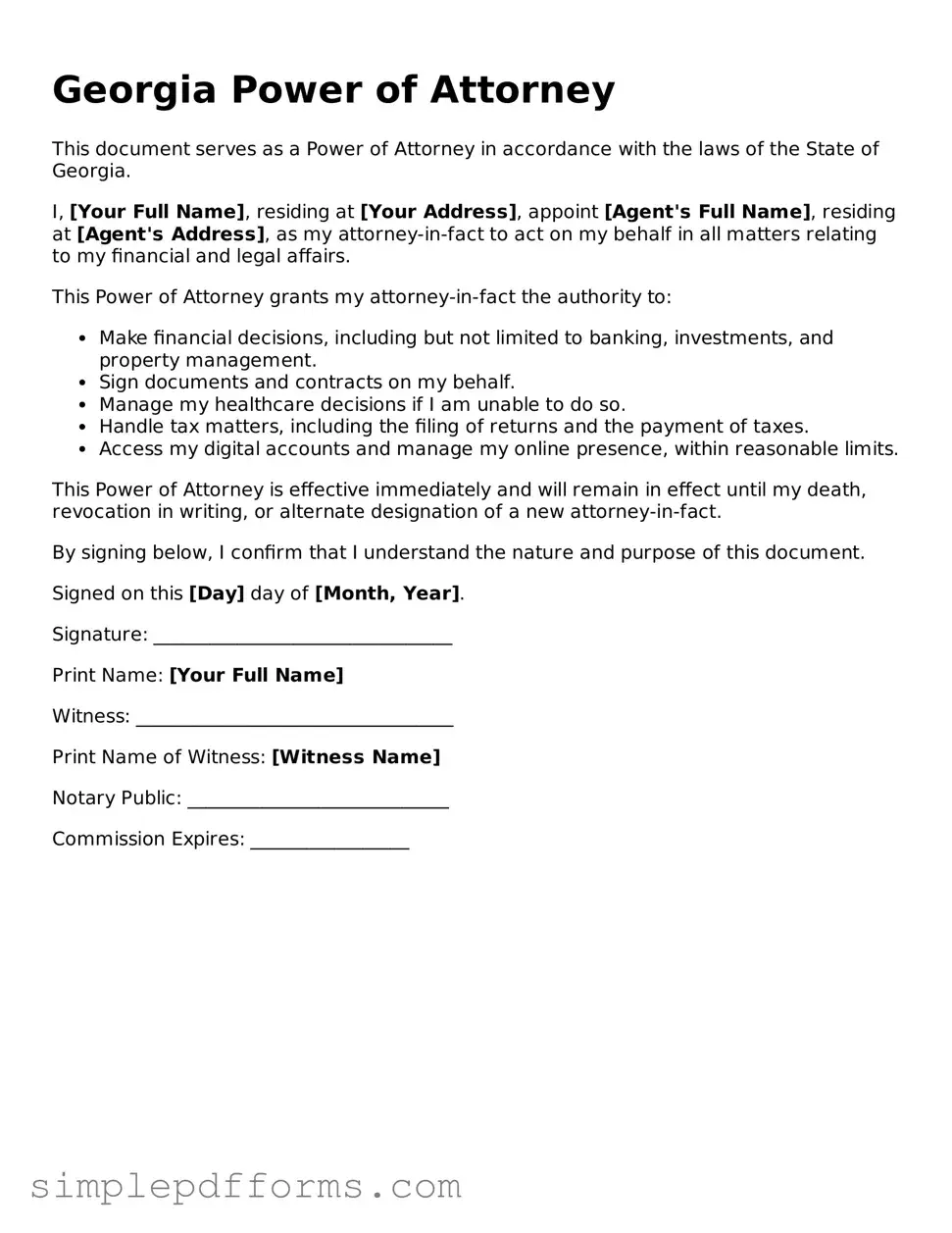Attorney-Verified Power of Attorney Document for Georgia State
A Georgia Power of Attorney form is a legal document that allows one person to grant another individual the authority to make decisions on their behalf. This form can be used for various purposes, including financial and medical matters. Understanding its provisions is essential for anyone considering designating a representative in Georgia.
Open Power of Attorney Editor Now

Attorney-Verified Power of Attorney Document for Georgia State
Open Power of Attorney Editor Now

Open Power of Attorney Editor Now
or
Get Power of Attorney PDF Form
Your form is waiting for completion
Complete Power of Attorney online in minutes with ease.